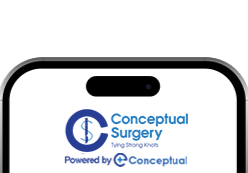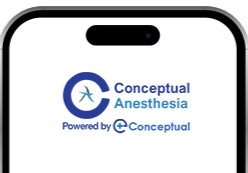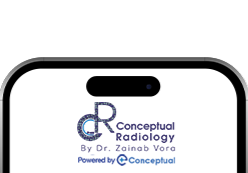
Estimated reading time: 5 minutes
A medicine residency is a postgraduate residency in which a physician sharpens their skill in internal medicine after MBBS. This time is important in building clinical judgement, diagnostic reasoning, and patient management skills. Medicine residents perform actual-world tasks—managing patients, interpreting investigations, coordinating care, and in many instances, making life-saving decisions.
It’s the stage where medical graduates become confident, independent doctors. Selecting the appropriate hospital for their residency can have a considerable impact on the quality of training and subsequent career opportunities.
A main dilemma for potential residents in medicine is whether or not to select a government hospital or a private hospital. Both have exclusive merits, and understanding those differences will make you better informed to decide.
Let’s Get into the Debate: Government Vs Private Hospitals for Medicine Residency
1. Clinical Exposure: The Backbone of Residency
When it comes to exposure and more practice, Government hospitals win the race. Due to a higher patient load and limited resources, medical residents in government setups are exposed to a wide range of conditions and learn to make clinical decisions in challenging environments.
By contrast, private hospitals might have more formal protocols and improved facilities, but the range and number of cases could be relatively low. Still, technology utilisation and evidence-based practice are frequently more emphasised in the private sector.
- Government Hospitals: Best for developing confidence in handling complex cases on your own.
- Private Hospitals: Excellent for acquiring systematic and protocol-based care.
Also Read: What Is the Duration for Radiology Residency in India?
2. Faculty and Mentorship
The calibre of mentorship is not only different between industries but also between institutions. Top hospitals, either government or private, are characterised by their committed faculty.
Government hospitals typically have experienced professors with a lot of teaching experience. They might be overextended, however, because of administrative or academic obligations. Private hospitals can provide more individualised mentoring, particularly in well-funded, teaching-oriented environments.
3. Opportunities: Academic Vs Research
Residents who want to pursue academic medicine or research, private hospitals, especially those that are affiliated with a medical college, might provide superior infrastructure and support. Most best hospitals for residency programs in the private sector are actively engaged in clinical trials and academic publications.
All the same, top government institutions such as AIIMS, PGI, and JIPMER are research institutions and regularly produce some of the best medical residents and publications in the nation.
Also Read: 5 Myths About Medicine Residency You Need to Stop Believing
4. Workload and Work-Life Balance
Let’s face the truth, residency programs in medicine are gruelling, no matter where you are. But government hospitals, with their a lot of patient loads and minimal staff, tend to involve longer hours and more exhausting work. Private hospitals can provide a more balanced lifestyle, depending on the institution.
Still, nothing can deny the intensity and learning that come with taking responsibility early, and this is where government hospitals excel.
5. Post-Residency Career Options
Your future isn’t just defined by where you train, but also by what you do with it. That being said, completing the top medicine residency program can create more opportunities, either in India or internationally.
- Government-trained medicine residents possess clinical acumen, particularly in resource-poor environments.
- Residents who undergo private training usually have a higher exposure to high-technology diagnostic equipment, patient interaction, and corporate medical systems.
How Can Conceptual Medicine Help You During Residency?
No matter where you go, either in the private or government sector, you will feel the need for conceptual medicine. Conceptual medicine provides you with academic and clinical support throughout your medicine residency journey.
Here is what conceptual medicine has to offer you:
- Expert Faculty-Led Learning: Gain insights from renowned internal medicine educators who provide in-depth knowledge beyond textbooks.
- Flexible Learning Options: Access live lectures and on-demand recorded content, allowing you to learn at your own pace amidst a busy residency schedule.
- Interactive and Engaging Content: Utilise tools like interactive case studies, 3d anatomical models, and dynamic flowcharts to simplify complex topics.
- Comprehensive Coverage: Benefit from a curriculum that spans foundational principles to advanced clinical skills, tailored for MD/DNB residents.
- Affordable Plans: Choose from budget-friendly options like the Premium and Buddy Plans, ensuring quality education without financial strain.
- Exam Preparation Support: Access extensive question banks and revision sessions to aid in your MD/DNB exam preparations.
Conclusion:
See, it is very clear whether you go for a government or private hospital for your medical residency; the real thing that matters is how committed and active you are during your residency. Government hospitals provide unparalleled clinical exposure, while private hospitals give you superior infrastructure and organised learning. Finally, the perfect medicine residency experience is the one where you challenge yourself, remain curious, and never say stop.
So, no need to worry about what you will get; Conceptual Medicine is here to help you and guide you during your residency.
Our Most Watched Videos:
- Classification of DNA and RNA Viruses by Dr. Dilip Kumar | Medicine Residency | Conceptual Medicine
- Why Choose Medicine As a Branch? | Conceptual Medicine
- Altitude Illness by Dr. Vishal Gabale | Medicine Residency | Conceptual Medicine
- Hemato Oncology Approach To Anemia By Dr Dilip Kumar | Medicine Residency | Conceptual Medicine










